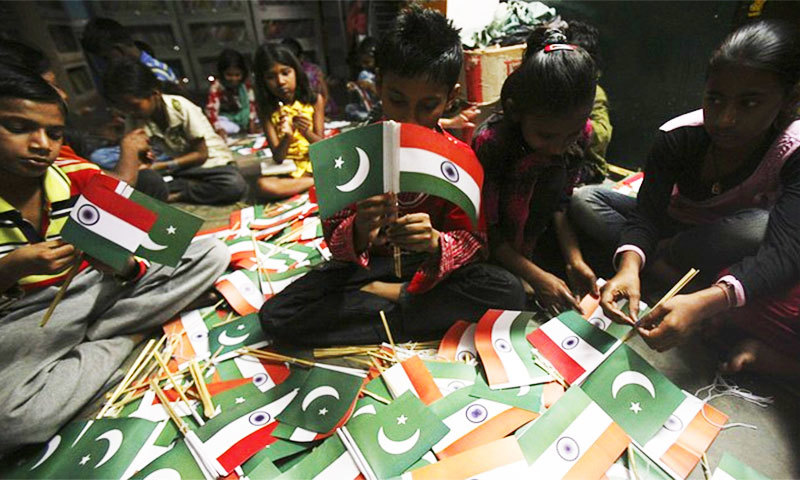My op-ed today for Express-Tribune
Once again, the fragile peace process between India and Pakistan has commenced. It is too early to say whether it will lead to an amicable settlement of seemingly intractable issues. What is clear is that the peoples of the two countries want peace, security and progress. The elites, which agreed on the messy Partition and raised nation-states and huge militaries, have surely flourished at the expense of people. A causal look at India’s poverty and Pakistan’s social indicators proves this point.
As a confidence building measure, a group of Pakistani journalists visited Delhi, Mumbai and Bangalore to meet their counterparts, think tanks and selected top-level officials. This was a timely and fruitful visit and reminded us that there is a formidable peace constituency in India. After the Indian home minister it is the turn of the Indian foreign minister to visit Islamabad from today for a three-day tour. Regardless of the outcome, sensible neighbours must continue to talk.
Evidently, the Mumbai terror attacks were the greatest stumbling block in resuming dialogue. Discussions at Sharm el Sheikh were a major breakthrough. Dr Manmohan Singh overcame tough public opinion after the joint declaration. This year’s dialogue at the Saarc Summit in Bhutan catalysed the peace process. After the 18th amendment to the Pakistani Constitution, the Indian side has noted the power shift within Pakistan as it strives to reclaim the democratic path.
Pakistani media persons, including me, could not help notice the centrality of the Mumbai attacks factor, which continues to inform public opinion in India. A majority of Indians hold Pakistan fully responsible for the event. The caveat here is that they often forget that Pakistan is also a victim of terrorism. But there is growing awareness in India about the internal challenges within Pakistan. This is why the Indian leadership has delinked dialogue from terrorism.
To facilitate the peace process, Pakistan should demonstrate its resolve to pursue proper investigation into the alleged Mumbai conspiracy hatchers. The Indian home minister left Pakistan in June somewhat assured of the efforts being made here. Our foreign minister should also reassure his Indian counterpart.
Public opinion in Pakistan has to be strengthened against militancy and extremism. The out-of-control militant groups are a nightmare for Pakistan and cast a dark shadow over its future. Furthermore, media and telecommunication restrictions need to be lifted on both sides. It is fashionable to deride the vigil brigade for being unrealistic but there is no alternative to people-to-people contacts. Indians, thanks to the global media, view Pakistan as a country full of ‘terrorists’. We must change this and not let the hawks on the Indian side to misrepresent us.
Published in The Express Tribune, July 14th, 2010.



